English
4/30/25
La Jornada
To Mexican Autoworkers
By UAW President Shawn Fain
I am an autoworker. My grandparents were autoworkers. I grew up in an autoworker town called Kokomo, Indiana.
As a young father, I got a job as an electrician at Chrysler. I joined the UAW – the United Auto Workers – and it changed my life. Through the union, I learned that no matter where you’re from, if you work for a living, the working class is your family. So today, on International Workers Day, May Day, I want to say loud and clear: Mexican autoworkers are not our enemy. You are our family.
We, Mexican and U.S. autoworkers, work for the same corporations that rake in tens of billions of dollars in profits made on the backs of working people. We both take enormous pride in the quality of the work we do. And we are both getting screwed by a disastrous free trade system that pits us against each other in a race to the bottom while the billionaires get richer.
I saw this happening in the 1990s in my hometown of Kokomo, Indiana. Kokomo was an auto town. Regular working-class people had good blue-collar jobs with GM and Chrysler. My grandparents came to Kokomo in the 1930s during the Great Depression in search of a better life.
When I see Mexican autoworkers fighting for a better life for themselves, that’s who I see: my grandparents. The UAW didn’t tell my grandparents “go back to where you came from.” The UAW said “sign your union card, and let’s fight for a better life.”
In the 1990s, I saw the Kokomo I grew up in begin to disappear. Plants started to close. Families got torn apart. Why? So the automakers could make another dime off the backs of even more exploited workers in other countries.
The Mexican working class saw the writing on the wall, too. Along with NAFTA, there was a broad push to keep the Mexican working class down. A young Claudia Sheinbaum attended protests, demanding fair trade. At the first minute of 1994, as NAFTA went into effect, an Indigenous uprising showed the world that Mexico’s working people were not fooled by so-called “free trade.” The only people celebrating were the billionaires and their lackeys.
After thirty years of NAFTA, both Mexican and US autoworkers are worse off. The higher standards and additional jobs we were promised? They never materialized In fact, the exact opposite happened.
When adjusted for inflation, Mexican autoworkers’ average dollar-per-hour wage has in fact decreased significantly. Mexican autoworkers make, right now, a tenth of the wages made by U.S. and Canadian autoworkers, whose real wages have fallen too.
For the last few years, independent unions at GM Silao, Volkswagen, Audi, Good Year in San Luis Potosi, just to mention a few, have made impressive strides towards consolidating an independent and authentic Mexican labor movement and are fighting like hell to close the wage gap. But the facts speak for themselves. Companies still blacklist union workers. Judges still break up independent unions in Mexico. And corporations still pay poverty wages while raking in billions.
We cannot wait another thirty years while our communities get destroyed, and our families broken. The UAW has called for an end to the free trade disaster. Because no corporation that makes billions of dollars in profits should pay someone three dollars an hour to give their life to a factory.
The UAW has called for a North American minimum wage for autoworkers. Because if companies want to compete, it shouldn’t be over how little they can pay their workers, and how badly they can treat us. That’s a race to the bottom.
The UAW has called for international solidarity among US, Mexican, and Canadian autoworkers. Because the companies are united in their mission to squeeze us for every penny. And we need to be united in our mission to win a dignified life. How do the corporations get away with it? Divide and conquer. They divide US and Mexican autoworkers, and try to get us to fight each other for crumbs, while they walk away with the whole pie. So let me say clearly: the UAW stands with you, our Mexican union family. You, the Mexican autoworker, deserve better. You deserve a living wage, not a poverty wage. You deserve the right to a free, independent union where your voice is heard. You deserve healthcare, a decent retirement, and time to spend with your family.
Just like American autoworkers. And we will use every tool in the toolbox, from tariffs to renegotiating the USMCA to strikes to political action, to win our fair share, no matter what country you’re in.
We will support the cause of the Mexican autoworkers, because it is our cause. To win back dignity for the working class of all countries. On this very special May Day we salute you. We commend you. We stand in solidarity with you and all working people everywhere.
This op-ed ran in La Jornada on April 30, 2025.
Español
4/30/25
La Jornada
A los trabajadores mexicanos de la industria automotriz
By UAW President Shawn Fain
Soy un obrero de la industria automotriz. Mis abuelos fueron obreros de la industria automotriz. Crecí en un pueblo de obreros de la industria automotriz llamado Kokomo, Indiana.
Siendo padre joven, me empleé como electricista en Chrysler. Me afilié a la UAW, el Sindicato del Sector Automotriz, y me cambio la vida. Por ellos aprendí que no importa de donde seas, si trabajas para vivir, tu familia es de clase obrera.
Por eso hoy, primero de mayo, en el Dia Internacional de los Trabajadores, quiero decir fuerte y claro: el obrero mexicano no es nuestro enemigo. Ustedes son nuestra familia.
Los obreros de la industria, mexicanos y estadounidenses, trabajamos para las mismas empresas que acumulan decenas de miles de millones de dólares en rentas obtenidas a costa de la clase obrera. Ambos sentimos orgullo por la calidad de nuestro trabajo. Y a ambos nos está jodiendo el desastroso sistema de libre comercio que nos pugna en competencia hacia la precariedad, mientras los multimillonarios se hacen más ricos.
Yo lo vi en Kokomo en los 90s. Mi pueblo era del sector. Su gente de clase obrera tenía trabajos en GM y Chrysler. Mis abuelos llegaron a Kokomo en los 30s durante la Gran Depresión buscando una vida mejor.
Cuando veo a los obreros mexicanos luchando por una vida mejor para sí mismos, son a ellos a quienes veo: mis abuelos. La UAW no dijo a mis abuelos “regresen por donde vinieron.” La UAW les dijo “afíliense, luchemos por una vida mejor.”
En los 90s, vi al Kokomo en el que crecí comenzar a desaparecer. Las fabricas cerraban. Las familias se desintegraban. ¿Por qué? Para que las armadoras pudieran ganar más dinero a costa de obreros aún mas explotados en otros países.
La clase obrera mexicana también vio las señales. Con el TLCAN llegó un esfuerzo amplio para oprimir más a los obreros mexicanos. Una joven Claudia Sheinbaum acudía a manifestaciones demandando un comercio justo. Al primer minuto de 1994, cuando el TLCAN entraba en vigor, un levantamiento indígena mostró al mundo que los pobres de México no se tragaban el supuesto “libre comercio.” Los únicos celebrando eran los millonarios y sus lacayos.
Después de 30 años del TLCAN, tanto los obreros de México como de EE. UU. estamos peor. ¿Los altos estándares y empleos adicionales prometidos? Nunca se materializaron. De hecho sucedió exactamente lo opuesto.
El salario promedio en dólares por hora del obrero mexicano en la industria, ajustado a la inflación, de hecho, ha bajado significativamente. El obrero mexicano gana, en este momento, la décima parte de lo que ganan los obreros de EE. UU. y Canadá, para quienes los salarios reales también han decaído.
En los últimos años, sindicatos independientes en GM Silao, Volkswagen, Audi, Good Year en San Luis Potosí, por mencionar algunos, han logrado avances impresionantes para consolidar un movimiento sindical independiente y autentico y están dando la batalla para cerrar la brecha salarial.
Pero los hechos hablan por si mismos. Las empresas aún tienen listas negras de activistas. Los jueces siguen socavando a los sindicatos independientes en México. Y las empresas aun pagan salarios de pobreza mientras acumulan miles de millones.
No podemos esperar otros 30 años mientras destruyen a nuestras comunidades y desintegran a nuestras familias.
La UAW ha llamado al fin del desastre del libre comercio. Porque ninguna empresa que hace miles de millones en ganancias debería pagar tres dólares la hora por dejar la vida en una fábrica.
La UAW ha llamado a establecer un salario mínimo norteamericano para la industria. Porque si las compañías quieren competir, no debería ser sobre quien puede pagar menos. Eso es competir hacia la precariedad.
La UAW ha llamado a la solidaridad internacional de los obreros automotrices de EE. UU., México y Canadá. Porque las compañías están unidas en su misión de exprimirnos por cada centavo. Y debemos estar unidos en nuestra misión de ganar una vida digna.
¿Por qué las empresas se salen con la suya? Divide y vencerás.
Ellos nos dividen a los trabajadores automotrices de EE. UU. y México, y pretenden hacernos pelear por migajas mientras ellos se llevan todo el pastel.
Por eso déjenme decirles claramente: la UAW está con ustedes, nuestra familia sindical mexicana.
Ustedes, obreros automotrices mexicanos, merecen algo mejor.
Ustedes merecen un salario digno y no uno de pobreza.
Ustedes merecen el derecho a un sindicato libre e independiente donde su voz se escuche.
Ustedes merecen salud, pensión digna y tiempo para la familia.
Lo mismo que los obreros de EEUU. Y usaremos cada herramienta en el armario, desde aranceles hasta la renegociacion del T-MEC, hasta la huelga, hasta la accion politica, para ganar lo que justamente nos corresponde, sin importar en que pais estén.
Apoyaremos la causa de los obreros mexicanos, porque es nuestra causa. Hasta ganar la dignidad de la clase obrera en todos los paises.
En este muy especial primero de mayo, les saludamos. Les felicitamos. Nos declaramos en solidaridad con ustedes y con la clase obrera del mundo.
*Presidente Internacional de los Trabajadores de los Sectores Automotriz, Aeroespacial, e Implementos de Agricultura Unidos de Norteamérica, UAW.
This op-ed ran in La Jornada on April 30, 2025.





NYC Mayoral Candidate Zohran Mamdani and AG Letitia James Rally with Striking UAW Legal Workers to Demand Resources Needed to Represent Vulnerable New Yorkers
UAW Statement on the Republicans’ Anti-Worker Budget Reconciliation Bill
BOSK Workers Call on NLRB to Step In: “We Deserve a Fair Shot at a Union Vote”